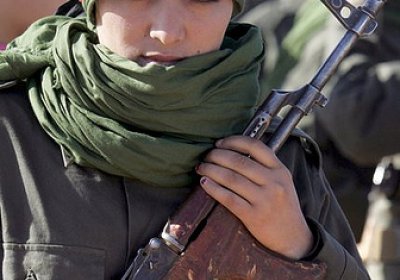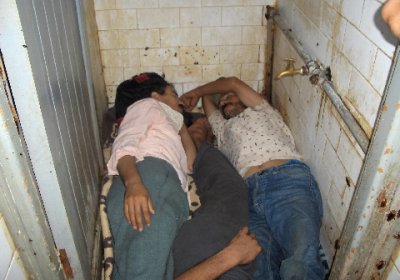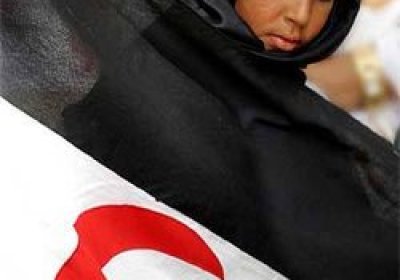After two decades of political deadlock, Africa’s oldest refugee population is losing faith in UN mandated peace negotiations.
“No one will give us our freedom — we must take it!,” Sahrawi journalist Embarka Elmehdi Said told Green Left Weekly.
Said sees little hope for a peaceful resolution to the crisis that has gripped Western Sahara since its independence from Spain in the 1970s.
A child when her family fled the Moroccan invasion of Western Sahara in 1975, Said has spent most of her life in the Polisario run refugee camps on the Western Sahar-Algeria border.
Western Sahara
Laayoune is the largest settlement in Western Sahara territory, which has been occupied by Morocco since 1975.
The Sahrawi people continue to demand independence after decades of poor treatment under Moroccan rule. Many Sahrawi report being routinely subjected to police brutality and say they suffer widespread discrimination.
Activists in Laayoune face a day-to-day struggle with local authorities. The city is touted by the Moroccan government as a regional development hub, but from the ground looks more like an infantry barracks.
Western Sahara is the last country in Africa awaiting decolonisation.
Invaded by Spain in the late 19th century, mass mobilisations in the early 1970s heralded the birth of the modern independence movement.
In 1973, the Popular Front for the Liberation of Saguia el-Hamra and Rio de Oro (Polisario Front) was established to wage an armed independence struggle.
By 1975, Polisario had fought Spain to a standstill. Rather than grant independence, Spain made an agreement with neighbouring countries Morocco and Mauritania to occupy Western Sahara.
The conflict in Western Sahara, little known in Australia, is at last starting to get some prominence.
Unionists held a protest outside the Moroccan embassy in Canberra on February 9. This coincided with a visit to the Western Saharan capital, El Aaiun, by eight European trade unions to investigate the attack on striking phosphate workers by Moroccan police in August 2010.
A former Spanish colony, Western Sahara has been illegally occupied by Morocco since 1975, in defiance of international law and UN resolutions calling for a referendum on self-determination.
The crackdown by Moroccan occupation forces on the protest camp at Gdeim Izik on November 8 may have brought more attention to the plight of Western Sahara than was intended.
The 20,000-strong camp at Gdeim Izik, 15 km from the Western Saharan capital, El Aaiun, was established on October 9 to protest against the discrimination and oppression experienced by Saharawi people living under Moroccan occupation.
Demonstrators marched in Santa Cruz, the capital of Spanish-ruled Canary Islands just off the north-west African coast, on November 11 against the week-long assault on a protest camp in Moroccan-occupied Western Sahara.
James Tweedie wrote on Ositorojo.blogspot.com that day that more than 1000 people, many Sahrawis but mostly Spanish Canarians, marched through the city centre to demand an end to the police and military operation.
Cuba and Venezuela condemned on November 11 the repression by Moroccan forces against Sahrawi people in El-Aaiun, the Venezuelan News Agency (AVN) said that day.
Cuban and Venezuela’s ambassadors to Algeria, Hector Michel Mujica and Eumelio Caballero, condemned the attack by Morrocco, which is illegally occupying Western Sahara. The ambassadors are also the accredited diplomatic representatives of their nations to the Sahrawi Arab Democratic Republic (SADR), the independence of which is being denied by Morocco.
Moroccan occupation forces brutally attacked and destroyed the Saharawi Gdeim Izik protest camp on November 8, which had grown to over 20,000 since being established on October 9.
The Australia Western Sahara Association has urged BHP-Billiton to suspend Canadian company PotashCorp’s trade in phosphate from Western Sahara if its takeover bid is successful.
AWSA president Lyn Allison said in an August 25 statement: “If BHP cares anything for business ethics, social responsibility and international law, it will not allow the Canadian fertiliser corporation to buy further Western Saharan phosphate from Morocco.”
Saharawi refugee and preschool teacher Fetim Sellami is a central character in the Australian documentary Stolen, a film set in the refugee camps in south-west Algeria that have been home to 165,000 Saharawi refugees since their country, Western Sahara, was invaded by Morocco in 1975.
However, when she and her husband, Baba Hocine Mahfoud, attended its June 11 premiere at the Sydney Film Festival, they did not receive red carpet treatment, despite the long distance they had travelled.
[This is a statement released by the Australia Western Sahara Association (Victoria) on December 4.]
Representatives of Western Saharas Polisario Front (the Saharawi liberation movement) and the Moroccan government met in Manhasset, New York, on August 10 and 11 with a view to achieving a just, lasting and mutually acceptable political solution, which will provide for the self-determination of the people of Western Sahara the words of UN Security Councils Resolution 1754, adopted on April 30.
- Previous page
- Page 4
- Next page








